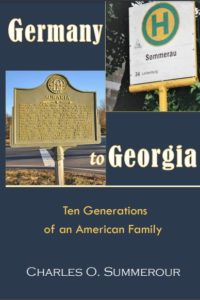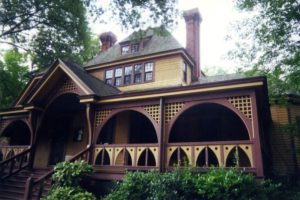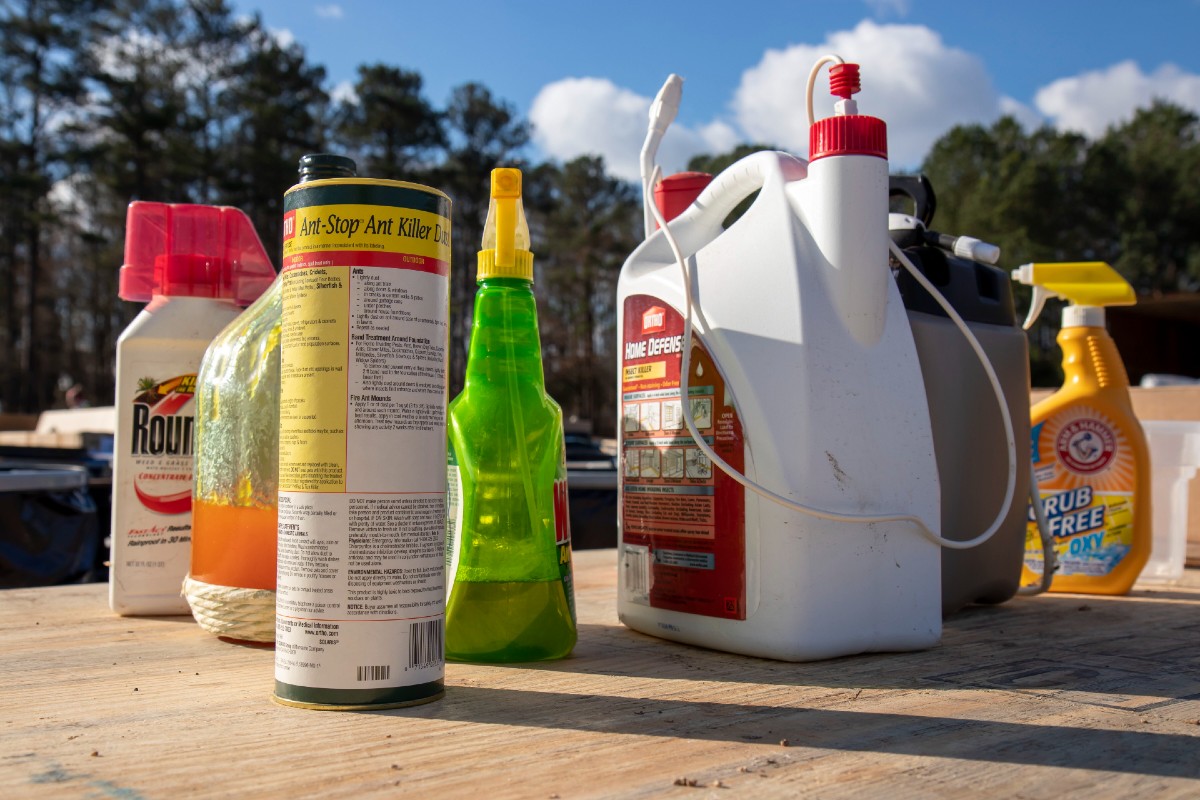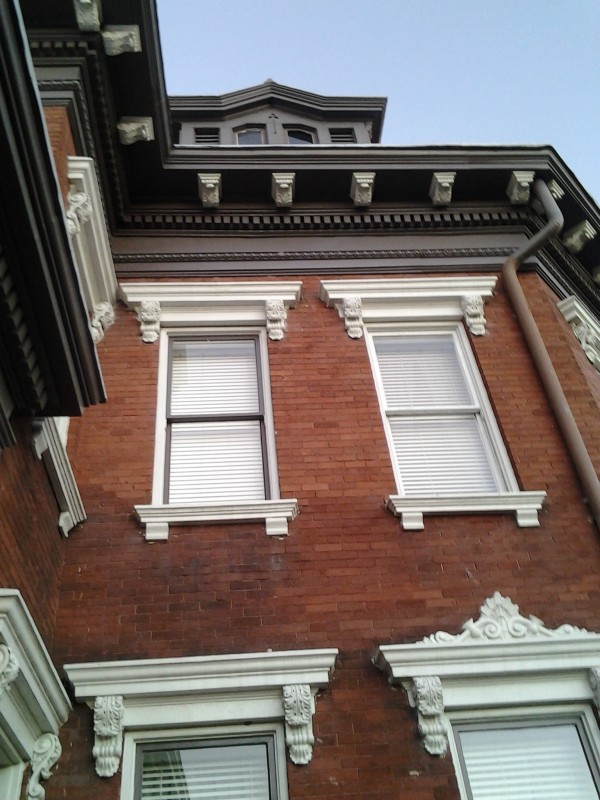GwinnettForum | Number 21.07 | Jan. 25, 2022
WHAT’S AMONG the items acceptable at Gwinnett Clean and Beautiful’s household waste day coming up on February 12. This photograph shows some of the items that will be accepted at this free recycling day. For more details, see Upcoming below.
TODAY’S FOCUS: Federal Drug Administration falls short in fight against COVID
EEB PERSPECTIVE: From Germany to Georgia: following the Summerour family
SPOTLIGHT: The Piedmont Bank
UPCOMING: Free household hazardous waste day coming up on February 12
NOTABLE: Rainbow Village adds three members to its board
OBITUARIES: Hartwell B. Wash
RECOMMENDED: Luciano’s Ristorante Italiano, Duluth
GEORGIA TIDBIT: Georgia last Southern state with Sunday sales “blue law”
MYSTERY PHOTO: There’s more to this photo than you might think
LAGNIAPPE: Sometimes the light comes on at just the right time
CALENDAR: North Gwinnett Kiwanis sponsor father-daughter dance
Federal Drug Admin. falls short in fight against COVID
By Joe Briggs
SUWANEE, Ga. | The news of U.S. COVID-related deaths approaching 900,000 and overwhelmed hospitals after two years is alarming. More concerning is why the U.S. Food and Drug Administration is blocking our doctors from prescribing off-label use of known drugs for home use to prevent, treat, and reduce hospitalization rates.
Why has India, a country with four times the U.S. population, experienced a COVID death count less than half of ours? Sorting the world COVID deaths by country show the equatorial and frequently poorest nations have the lowest counts. Doctors there and in Mexico City have repurposed existing malaria and parasite drugs distributed in a kit for home use. The kits contain ivermectin, hexachoroquine, and iodine throat & nose rinses. Japan, Bulgaria, Egypt, and other nations have also approved their use.
The U.S. health agencies went all-in on a new mRNA vaccine. Instead of backing the risk with at-home early treatment using in-pharmacy medications, the FDA sought to quash them then discredit the prescribing doctors even though they did so within long-standing FDA ‘re-purpose’ guidelines. Why?
The FDA says it hasn’t approved ivermectin or hexachloroquine for COVID because they have not been shown effective in a double-blind, peer-reviewed trial. It has warned doctors to not prescribe them and tells us that taking the wrong dose can be deadly. What are they waiting for? Approving drugs and dosages is their mission statement. Failure to do so is what leads to desperation and misuse.
Ivermectin is a Nobel Prize-winning therapeutic that has been proven safe with over four billion doses. There are dozens of trials and documented cases both in the US and internationally that point to the safety and efficacy of these drugs for prevention and early treatment of COVID for about $1 a day. Sure, some of the trials and methods do not meet FDA standards. But the data speaks loudly.
My 75-year-old vaccinated aunt came home from the doctor recently with a 104-degree temperature and a COVID diagnosis. She was given no prescription or advice on how to treat it other than go to the emergency room if it gets worse. My 58-year-old vaxxed and boosted brother tested positive and says he feels like he got hit by a truck.
Yet my 55-year-old anti-vax brother-in-law who licks ivermectin Rosacea cream from a tube he bought on EBay is doing great. So is my 48-year-old unvaxed nephew and wife who both took ivermectin bought at Tractor Supply when they got COVID and recovered in a few days. Another brother tested positive last Fall and his doctor prescribed ivermectin which cleared it right up. My four college-age kids have all been vaxxed but but have all had COVID afterwards. So here I am fully vaccinated, feeling vulnerable, and my doctor telling me that they can’t prescribe anything because the FDA hasn’t approved anything.
The problem today is not an under-performing vaccine. It’s the failure of the FDA to acknowledge what works, determine recommended dosages and treatments, and to support frontline doctors willing to repurpose existing drugs into a safe home treatment to reduce symptom progression to hospitalization.
- Have a comment? Send to: elliott@brack.net
From Germany to Georgia: following the Summerour family
By Elliott Brack
Editor and Publisher, GwinnettForum
JAN. 25, 2022 | Family history books can sometimes be boring for persons outside the immediate family.
![]() However, Charles Summerour of Duluth has completed a 10-generation study of his Summerour family that gives good insights into the life of North Georgia, particularly centered on what his family did in gold mining and in farming in the Johns Creek area. It’s a fast read, and keeps readers fascinated by his distinctive family members.
However, Charles Summerour of Duluth has completed a 10-generation study of his Summerour family that gives good insights into the life of North Georgia, particularly centered on what his family did in gold mining and in farming in the Johns Creek area. It’s a fast read, and keeps readers fascinated by his distinctive family members.
The family’s roots in Germany are from the Rhine-Palatinate area, particularly in the Trier-Saarburg District in Southwest Germany. The current population of their small town is only 75, with no Summerours living there now.
The first Summerours arrived in this country when it was still a British Colony, back in 1748, arriving in Philadelphia. This was a time when over 100,000 Germans would eventually migrate here, many settling in Pennsylvania. German language was routinely spoken in this area. Later the wider family would move to North Carolina, and still later to Georgia.
By the 1820s, Henry Summerour III (1787-1848) would be part of the Gold Rush in the Auraria area (a town that no longer exists in Lumpkin County.) Others of his family came to the area, and one of the Summerours opened a general store. The family was also active in the frenzy of gold mining, as were many people.
When gold was discovered in California in 1849, two brothers of the Summerour family set out for that area, settling in the Sacramento River area. Almost immediately, they found gold mining was bountiful. One brother wrote back: “(Gold) is so abundant that you can see it in the dirt.” After two years in California, one of the brothers returned, bringing with him a leather satchel that family history says contained 786 ounces of gold. That’s 50 pounds, “equivalent to $1.4 million today”, writes Charles.
That satchel of gold set up the Summerour family as among the richest in North Georgia. It also paved the way to what would be another major direction of the Summerour family: farming.
 The primary area of several Summerours in farming was in what is now the City of Johns Creek. The family centered around the Warsaw area, at Medlock Bridge Road and State Bridge Road. All total, a story in The Atlanta Constitution in 1964 described the Summerour lands as totaling 2,117 acres. It stretched from the Old Alabama Road to the Chattahoochee River, including the Atlanta Athletic Club.
The primary area of several Summerours in farming was in what is now the City of Johns Creek. The family centered around the Warsaw area, at Medlock Bridge Road and State Bridge Road. All total, a story in The Atlanta Constitution in 1964 described the Summerour lands as totaling 2,117 acres. It stretched from the Old Alabama Road to the Chattahoochee River, including the Atlanta Athletic Club.
Just after the turn of the century (1900s), one of the Summerours, Homer, began paying attention to his cotton stalks. Some of his cotton seemed to produce larger bolls than others, and he started collecting their seeds for re-planting. What resulted in a few years was a superior cotton seed, one with a 50 percent higher yield, called the “Summerour Half and Half” cotton seed. Unfortunately, Homer died in 1915, before he saw the experimentation come to completion. His son, Ben, took forward the idea, and successfully marketed the superior seed in wider parts. Ben also had a cotton gin later in Norcross, where he lived.
Meanwhile, other Summerours were active in the area, one farming in Gwinnett. Charles’s granddad started a tannery, which eventually became a leather manufacturing company complete with mail-order catalog (for dog collars, saddles, bridles, animal halters.)
Charles Summerour has written a fascinating book, entitled Germany to Georgia, about how one extended family has prospered and thrived in this area. It’s well worth reading, giving insights to this area. It is available online at Amazon for $19.99.
- Have a comment? Send to: elliott@brack.net
The Piedmont Bank
 The public spiritedness of our underwriters allows us to bring GwinnettForum.com to you at no cost to readers. Today’s underwriter is The Piedmont Bank, which opened its doors in 2009, is a full-service commercial bank. It has recently closed a merger with Westside Bank with offices in Paulding and Cobb Counties and also recently opened an office in downtown Duluth. Piedmont now has offices in 14 locations, with its home office in Peachtree Corners at 5100 Peachtree Parkway and other locations; at 185 Gwinnett Drive in Lawrenceville; east of Interstate 85 near Suwanee at Old Peachtree and Brown Roads; in Dunwoody at 1725 Mount Vernon Road, in Cumming at 2450 Atlanta Highway and in Cleveland, Gainesville, Jefferson and Blue Ridge, plus another office in Kennesaw opening soon. Piedmont Bank has capitalization in excess of $180 million and over $1.8 billion in total assets and is active in making loans to businesses and individuals in its local markets. Piedmont’s board of directors includes local business leaders with strong ties in the communities it serves. Board members include Lamar Black, Ray Black, Robert Cheeley, Paul Donaldson, Kelly Johnson, John Howard, Paul Maggard, Michael Tennant, Ray Barnes and Monty Watson. Deposits at The Piedmont Bank are insured by the FDIC up to $250,000.
The public spiritedness of our underwriters allows us to bring GwinnettForum.com to you at no cost to readers. Today’s underwriter is The Piedmont Bank, which opened its doors in 2009, is a full-service commercial bank. It has recently closed a merger with Westside Bank with offices in Paulding and Cobb Counties and also recently opened an office in downtown Duluth. Piedmont now has offices in 14 locations, with its home office in Peachtree Corners at 5100 Peachtree Parkway and other locations; at 185 Gwinnett Drive in Lawrenceville; east of Interstate 85 near Suwanee at Old Peachtree and Brown Roads; in Dunwoody at 1725 Mount Vernon Road, in Cumming at 2450 Atlanta Highway and in Cleveland, Gainesville, Jefferson and Blue Ridge, plus another office in Kennesaw opening soon. Piedmont Bank has capitalization in excess of $180 million and over $1.8 billion in total assets and is active in making loans to businesses and individuals in its local markets. Piedmont’s board of directors includes local business leaders with strong ties in the communities it serves. Board members include Lamar Black, Ray Black, Robert Cheeley, Paul Donaldson, Kelly Johnson, John Howard, Paul Maggard, Michael Tennant, Ray Barnes and Monty Watson. Deposits at The Piedmont Bank are insured by the FDIC up to $250,000.
- For a list of other sponsors of this forum, click here.
Send us your thoughts
We encourage you to send us your letters and thoughts on issues raised in GwinnettForum. Please limit comments to 300 words, and include your hometown. The views of letters are the opinion of the contributor. We reserve the right to edit for clarity and length. Send feedback and letters to: elliott@brack.net.
Free household hazardous waste day coming up on Feb. 12
With “Decluttering” and “Getting Organized” topping the lists of many Gwinnett County residents’ New Year resolutions, Gwinnett Clean and Beautiful and Gwinnett Water Resources have an event in store that will help them do just that. On Saturday, February 12 from 9 a.m. to 1 p.m., cars will line up in the sprawling parking lot at Gwinnett County Fairgrounds to rid their homes of household hazardous waste, that is, products like pesticides, antifreeze, spray paint, auto batteries and more.
 Schelly Marlatt, executive director of Gwinnett Clean and Beautiful, says: “This event marks our seventh Household Hazardous Waste Collection Day here in Gwinnett. We have two opportunities each year to tweak this event and make it bigger and better each time. Last year, we moved the event to a weeknight to try and catch folks coming home from work. However, we found that Saturdays are overwhelmingly the best day to achieve the most attendance.”
Schelly Marlatt, executive director of Gwinnett Clean and Beautiful, says: “This event marks our seventh Household Hazardous Waste Collection Day here in Gwinnett. We have two opportunities each year to tweak this event and make it bigger and better each time. Last year, we moved the event to a weeknight to try and catch folks coming home from work. However, we found that Saturdays are overwhelmingly the best day to achieve the most attendance.”
To help Gwinnett County citizens gather items ahead of the big day on February 12, Gwinnett Clean and Beautiful has listed the following list of items that will be collected during the first four-hour Household Hazardous Waste Collection Day of 2022:
- Aerosol/spray pesticides
- Automotive products (engine degreaser, brake fluid, transmission fluid, antifreeze, etc.)
- Cleaners, corrosives, spot removers, acids and bases
- Aerosol/spray paint
- Auto batteries
- Batteries (household and rechargeable)
- Chlorinated solvents
- Cooking oil and grease
- Fire extinguishers
- Flammables (lighter fluid and waste fuels such as kerosene, gasoline, diesel fuel, etc.)
- Fluorescent bulbs and ballasts
- Insecticides
- Latex and water-based paints
- Lawn care products
- Mercury
- Mercury salts and elemental mercury thermometers
- Oil based paint and stains
- Oxidizers
- Poisons
- Propane cylinders
- Solvents and varnishes
- Thermostats and other mercury containing items
- Thinners and paint strippers
- Weed killer
- Wood preservatives
Gwinnett County residents may bring up to five containers of household hazardous waste during this free event. Containers may include laundry baskets, storage bins, copy paper boxes or similarly sized receptacles. Please bear in mind that containers will not be returned. For examples of container sizes, visit the event page at www.gwinnettcb.org. As for items that will not be collected during the Household Hazardous Waste day include Ammunition, Radioactive Waste, Pharmaceuticals, and Biomedical/Biohazard Waste.
County hires D.C. firm for $1.4 million transit plan
The Board of Commissioners is eyeing a new County Transit Development Plan and awarded a contract to Foursquare Integrated Transportation, Inc., of Washington, D.C. to develop one. Foursquare will help the Department of Transportation create a fresh new plan, focusing first on existing conditions, then identifying the needs and opportunities of Gwinnett’s transit system.
This plan will increase the accessibility, connectivity and mobility of multimodal transit throughout Gwinnett and the region. The intent of the transit development plan is to provide GCT with information, tools and data that will support short and long-range plans for future development and capital priorities.
Foursquare has worked with several local agencies – including MARTA, Atlanta- Regional Transit Link and the Atlanta Regional Commission. With the contract base amount of $1,485,105, the study is funded by County Transit Capital Funds and will take 18 months.
Rainbow Village adds three members to its board
Three members of the community have been added to the diverse board of directors of Rainbow Village of Duluth. They are:
Steve Emert is an attorney in practice in Duluth, and resident of Gwinnett since 1989. He and his wife Katie – a former Gwinnett County school teacher – have two children and attend 12 Stone church. He is a graduate of North Georgia College and State University, with a degree in law from Regent University, Virginia Beach, Va. When he’s not practicing law or attending board meetings, you will find him outdoors – mountain climbing, golfing or skiing.
Mona Reiser Armstrong of Suwanee is chief operating officer of Access Educational Holding of Alpharetta, a group of beauty and wellness schools. She has more than 30 years in operations, logistics and supply experience. In her free time, she loves photography, floral arranging and baking the best baklava in the world.
Cathe Reams of Cumming is communications director of Siemens USA, based in Alpharetta, a longtime Rainbow Village corporate partner. She previously served two terms on the Rainbow Village board. A master at taking on projects, this University of Alabama grad has been married to her electrical engineer husband, Mark, for 31 years.
- To learn more about Rainbow Village and its programs, make a donation or register as a volunteer, visit www.RainbowVillage.org.
Council seeks nominations in preserving historical records
Do you know someone who has done outstanding work using, preserving, or making historical records more accessible? Think about an historical or genealogical society, library, museum, county or municipal government, researcher, local historian, educator, or student. The Georgia Historical Records Advisory Council (GHRAC) wants to encourage and reward their exceptional efforts.
GHRAC established the Outstanding Archives Awards Program in 2003 to recognize outstanding efforts in archives and records work in Georgia. By publicly recognizing excellent achievements, the Board strives to inspire others. Hundreds of organizations and individuals play a significant role in the preservation of our state’s documentary heritage.
GHRAC has thirteen different award categories for individuals and organizations. Award recipients will be honored at the Georgia Archives by the GHRAC Board at a ceremony during Archives Month in October. Nominations must be postmarked on or before June 1, 2022.
All of the following are eligible for an award. (You may nominate your own organization.)
- local governments, courts, school systems, state agencies, and institutions;
- historical records repositories, historical societies, libraries, and museums ;
- educators, students, and researchers;
- legislators and government officials;
- individuals and organizations who support archives and records management; and
- specialized subject societies in related fields such as oral history, genealogy, folklore, archeology, business history, etc.
- Have a comment? Send to: elliott@brack.net
Hartwell B. Wash Jr.
Hartwell Wash, Jr., 83, of Rome, passed away on Wednesday, Jan. 12, 2022, at a local hospital. He was a native of Columbus and long-time resident of Lawrenceville, Georgia.
For years he ran Office Dimensions in Lawrenceville and was at one time a member of both the Gwinnett Rotary Club and the South Gwinnett Rotary Club. He was an Army veteran, an entrepreneur, loved his dog, Buddy, airplanes, and history.
Survivors include his daughter, Tracie Bethune (Tony); his stepson, Ryan Waldrop (Ann); his stepdaughter, Lesli Waldrop; his grandchildren, Taylor and Tanner Bethune, Jackson, Katie & Abby Waldrop; his great grandson, Josiah Ray Bethune.
A memorial service will be held at a later date. Henderson and Sons Funeral Home, South Chapel, makes this announcement for the family.
Luciano’s Ristorante Italiano, Duluth
![]() From Susan McBrayer, Sugar Hill: Today we were in the mood to lunch at a more upscale venue than our usual haunts, so we decided to revisit Luciano’s Ristorante Italiano on Sugarloaf Parkway. I am so happy we did! Our outdoor dining experience at this white-tablecloth restaurant was a delight from start to finish. I am a very picky eater, so I was surprised that I loved every mouthful – from the crispy buttered bread and tasty dip of olive oil, Parmesan and crushed tomatoes to the super fresh Italian Cobb salad. My lunch partner ordered the veal scallopini piccata with garlic sautéed spinach and savored every morsel. Our server, Sam, could not have been more charming and attentive. I can’t believe I’m writing a recommendation for a restaurant here, but this was such a splendid experience I wanted to share it. Luciano’s Ristorante Italiano is located at 6555 Sugarloaf Parkway in Duluth.”
From Susan McBrayer, Sugar Hill: Today we were in the mood to lunch at a more upscale venue than our usual haunts, so we decided to revisit Luciano’s Ristorante Italiano on Sugarloaf Parkway. I am so happy we did! Our outdoor dining experience at this white-tablecloth restaurant was a delight from start to finish. I am a very picky eater, so I was surprised that I loved every mouthful – from the crispy buttered bread and tasty dip of olive oil, Parmesan and crushed tomatoes to the super fresh Italian Cobb salad. My lunch partner ordered the veal scallopini piccata with garlic sautéed spinach and savored every morsel. Our server, Sam, could not have been more charming and attentive. I can’t believe I’m writing a recommendation for a restaurant here, but this was such a splendid experience I wanted to share it. Luciano’s Ristorante Italiano is located at 6555 Sugarloaf Parkway in Duluth.”
An invitation: what books, restaurants, movies or web sites have you enjoyed recently? Send us your recent selection, along with a short paragraph (150 words) as to why you liked this, plus what you plan to visit or read next. Send to: elliott@brack.net
Georgia last Southern state with Sunday sales “blue law”
(From previous edition)
By the turn of the 20th century, Atlanta had a prosperous African American community and many Black-owned businesses. During the 1880s evangelicals even courted Black voters, many of whom viewed prohibition as an opportunity to gain acceptance in white society. This tenuous alliance broke down as southern states, including Georgia, began implementing Jim Crow statutes to segregate public spaces and disenfranchise Black voters. As racial discrimination was codified into law, white prohibition supporters leveraged growing unrest to advance their agenda.
 The Atlanta Race Riot of 1906 provides a case in point. In the months before that conflagration, the city’s newspapers had stoked racial tensions by running dozens of articles that warned against social disorder, attributing Atlanta’s rising crime rates to drunkenness amongst the city’s working class African American men. The gubernatorial race of 1906, which pitted Hoke Smith, former publisher of the Atlanta Journal, against Clark Howell, editor of the Atlanta Constitution, only further inflamed passions, as both men campaigned on platforms that emphasized their commitment to white supremacy. Tensions reached a boiling point that September, when city papers ran a series of incendiary stories describing alleged assaults of white women by Black men. Though none of the stories were ever substantiated, they unleashed a paroxysm of violence among white Atlantans that raged for three days and ultimately claimed the lives of dozens of Black citizens.
The Atlanta Race Riot of 1906 provides a case in point. In the months before that conflagration, the city’s newspapers had stoked racial tensions by running dozens of articles that warned against social disorder, attributing Atlanta’s rising crime rates to drunkenness amongst the city’s working class African American men. The gubernatorial race of 1906, which pitted Hoke Smith, former publisher of the Atlanta Journal, against Clark Howell, editor of the Atlanta Constitution, only further inflamed passions, as both men campaigned on platforms that emphasized their commitment to white supremacy. Tensions reached a boiling point that September, when city papers ran a series of incendiary stories describing alleged assaults of white women by Black men. Though none of the stories were ever substantiated, they unleashed a paroxysm of violence among white Atlantans that raged for three days and ultimately claimed the lives of dozens of Black citizens.
Prohibitionists pressed their case in the wake of the Atlanta Race Riot and the General Assembly passed a statewide prohibition bill on August 6, 1907. Georgia was the first southern state to go dry, but others soon followed suit, and by 1915, eight states in the region had enacted statewide prohibition.
Supporters cheered the bill’s passage, but it soon became evident that loopholes were limiting its effectiveness. Private locker clubs frequented by the wealthy escaped closure by serving alcohol only to members, and near-beer saloons served low-alcohol content beverages to circumvent the law. Under political pressure, Governor John Slaton called a special legislative session in the fall of 1915 to eliminate the locker-club provision, ban mail advertisements for alcohol, and prohibit the so-called jug train that shipped alcohol into dry locales.
On June 26, 1918, Georgia ratified the 18th Amendment, which prohibited the manufacture, sale, or transportation of intoxicating liquors in the United States. Congress certified the amendment’s ratification the following year, and prohibition took effect in January, 1920. Thirst for strong drink never abated, however, and criminal organizations, which formed to satisfy unmet demand, were among the amendment’s greatest beneficiaries. For this reason, Georgians, like many Americans, grew frustrated with prohibition and later lobbied for repeal. The 21st Amendment, repealing national prohibition, was ratified on December 5, 1933, though Georgia was one of eight states never to consider the amendment.
Ratification only emboldened prohibition’s critics in Georgia, many of whom claimed that the state could not afford to remain dry. By the early 1930s, the Great Depression had taken a toll on the state’s coffers, and the prospect of statewide repeal stood to produce a windfall of new tax revenue.
Facing a dire economy and sustained advocacy from prohibition’s critics, the Georgia legislature approved the Alcoholic Beverage Control Act on March 22, 1935. The act called for a statewide referendum on the issue of repeal and tasked the State Revenue Commission with drafting new regulations to govern the sale and distribution of alcohol. Governor E. D. Rivers effectively nullified all remaining statewide prohibition statues in 1938 when he signed the Revenue Tax Act to Legalize and Control Alcoholic Beverages and Liquors. On the first day the city of Atlanta considered liquor licenses in over 22 years, the city council approved 64 retail package stores and 12 wholesalers.
Even after the repeal of statewide prohibition, laws designed to enforce religious standards—better known as blue laws—placed some restrictions on alcohol in Georgia. In 2011 Georgia Governor Nathan Deal signed a bill allowing communities to vote for the first time on the question of Sunday alcohol sales at convenience and package stores. Georgia was the last southern state with a “blue law” banning Sunday sales.
- To view the Georgia Encyclopedia article online, go to https://www.georgiaencyclopedia.org
There’s more to this photo than you might think
There’s more than meets the eye in this photograph. First, identify where it is, and then tell us what’s different about this tight photograph. Send your answers to elliott@brack.net, and be sure to include your hometown.
 The recent Mystery Photo again brought in multiple correct answers. The idea behind the photo came from Marlene Buchanan of Snellville. Holly Moore of Suwanee wrote: “That is a photo of the Joel Chandler Harris house, ‘The Wren’s Nest’ on Ralph D. Abernathy Boulevard in Atlanta. Harris was the editor of The Atlanta Constitution and the author of the Uncle Remus tales. He lived in this Queen Anne style house from 1881 until his death in 1908. The home is now a museum and is a U.S. National Historic Landmark.”
The recent Mystery Photo again brought in multiple correct answers. The idea behind the photo came from Marlene Buchanan of Snellville. Holly Moore of Suwanee wrote: “That is a photo of the Joel Chandler Harris house, ‘The Wren’s Nest’ on Ralph D. Abernathy Boulevard in Atlanta. Harris was the editor of The Atlanta Constitution and the author of the Uncle Remus tales. He lived in this Queen Anne style house from 1881 until his death in 1908. The home is now a museum and is a U.S. National Historic Landmark.”
Miriam Machida, Watkinsville: remembers: “The girls in my third grade class from Cascade Elementary School danced around the Maypole at the Wren’s Nest. At one time the public library’s West End branch was located in the basement of the house.”
Sara Rawlins, Lawrenceville: says: “This fine example of a Queen Anne Victorian home is known as the Wren’s Nest located in the West End of Atlanta. It was home to two well known men from Atlanta. The first man who built the first home at this site was George Muse. He moved with his family from Alabama in 1869 and started the George Muse Clothing Store in Atlanta, which was a successful business. Joel Chandler Harris bought the house. This is where he wrote his tales of Br’er Rabbit and Br’er Fox from stories he heard as a boy.”
Ann Mitchell of Dacula sent a photo: “I went with my three friends when we went for the one in the middle’s 50th birthday. Here’s a photo of Nichol Davidson and Kimberly Wallace of Marietta and Jill Osborne of Covington.”
Others recognizing the photo included Charles Anderson, Lawrenceville; Alana Moss, Duluth; Lynn Naylor, Norcross; James Butler Winston, Ga.; Bill Baughman, Snellville; Renee Peterson, Flowery Branch; Ann Mitchell, Dacula; Faye Hill, Lawrenceville; Lou Camerio, Lilburn; Robert Hanson, Loganville; George Graf of Palmyra, Va. and Susan McBrayer, Sugar Hill.
Sometimes the light comes on at just the right time
When Matthew Holtkamp stepped outside his Buford home on east Maddox Road to snap a snowfall photograph recently, just at that time the lights came on highlighting his garden. Talk about timing! Matt could not have done it any better! While it wasn’t a heavy snow, it covered the ground and hung heavy on the trees in the background.
![]() Project RESET 2.0 Emergency Rental Assistance Program will be held on Wednesday, January 26 at the Centerville Branch Library. Both programs will start at 10 a.m. and finish at 3 p.m. Bring a sandwich and learn. Project RESET 2.0 will provide rental, utility, and internet services relief for eligible renter households who have become housing insecure as a direct result of the impacts of COVID-19.
Project RESET 2.0 Emergency Rental Assistance Program will be held on Wednesday, January 26 at the Centerville Branch Library. Both programs will start at 10 a.m. and finish at 3 p.m. Bring a sandwich and learn. Project RESET 2.0 will provide rental, utility, and internet services relief for eligible renter households who have become housing insecure as a direct result of the impacts of COVID-19.
Day trips in Georgia: Learn more about exciting and educational Georgia day trips for you and your family on Sunday, January 30 at 3 p.m. at the Suwanee Branch Library, 361 Main Street, Suwanee. Author Tom Poland will revisit disappearing traditions in his book, The Last Sunday Drive: Vanishing Traditions in Georgia and the Carolinas. Books will be available for sale and signing at the event.
Father-daughter dances, sponsored by North Gwinnett Kiwanis will be February 4 and 5 at the Lanier Islands Resort. Cost is $60 per couple, with $10 for each additional daughter. For more information, contact David Williams 404-386-4782 or Chris Witmer 770-337-5313, or email kiwanis.of.north.gwinnett@gmail.com.
Meet Authors James Taylor and Wandy Taylor, authors of The Imperfect Storm: Racism & a Pandemic Collide in America – How It Impacted Public Education and How to Fix It, on Saturday, February 5 at 1 p.m. at the Lilburn Library Branch, 48174 Church Street. Join the authors to explore how systemic racism in public education has prevented many black and brown children from achieving their full potential, and how to successfully bridge the culture gap between teachers and students in culturally diverse classrooms.
The Mountain Park Community Association will have a February 10 public meeting with Commissioner Ben Ku and Gwinnett Code Enforcement. This will be informative for everyone, and will also gauge interest in forming a Citizen’s Code-Enforcement Team.
GwinnettForum is provided to you at no charge every Tuesday and Friday.
Meet our team
- Editor and publisher: Elliott Brack, 770-840-1003
- Managing editor: Betsy Brack
- Roving photographer: Frank Sharp
- Contributing columnist: Jack Bernard
- Contributing columnist: George Wilson
More
- Mailing address: P.O. Box 1365, Norcross, Ga. 30091
- Work with us: If you would like to serve as an underwriter, click here to learn more.
Subscriptions to GwinnettForum are free.
- Click to subscribe.
- Unsubscribe. We hope you’ll keep receiving the great news and information from GwinnettForum, but if you need to unsubscribe, go to this page and unsubscribe in the appropriate box.
© 2022, Gwinnett Forum.com. Gwinnett Forum is an online community commentary for exploring pragmatic and sensible social, political and economic approaches to improve life in Gwinnett County, Ga. USA.



















Follow Us